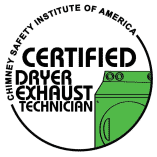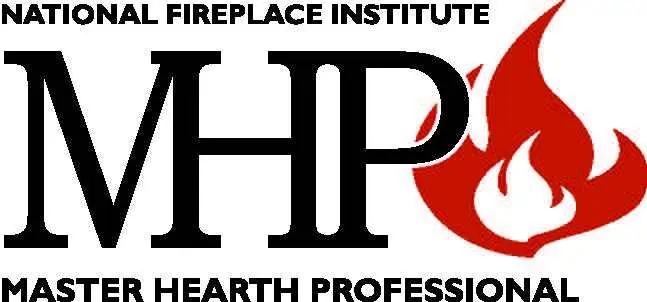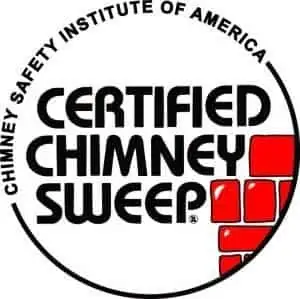Mon thru Fri: 9AM-5PM | Sat 9AM-1PM | Sun CLOSED
Air Duct Cleaning in Closter, NJ
In Closter, NJ, Apex Air Duct Cleaning & Chimney Services offers expert air duct cleaning to enhance your home’s air quality. Our services help eliminate dust, allergens, and improve HVAC efficiency. Trust us to keep your home’s air clean and healthy. Call 732-314-7171 today.
4.3
★★★★★ 5/5
(71 Reviews)
what your new jersey neighbors are saying

★★★★★
Read More
Had apex appliance come to my home to service my dryer vent and chimney. There customer service was great and i couldn’t be more satisfied, I will definitely be using them in the future!

★★★★★
Services: Dryer vent cleaning, Chimney inspectionsPositive: Professionalism, Responsiveness
Read More
I had a great experience. Ivan was personable and got the job done quickly and efficiently. I would recommend their services!

★★★★★
Services: Chimney repair & restoration, Chimney inspectionsPositive: Professionalism, Punctuality, Quality, Responsiveness, Value
Read More
Great service- super clear and detailed on the project from the estimate through completion of the work and very professional

★★★★★
Read More
Jeff was very patient answering all my questions and educated me with my dryer vent. They were very thorough with their work and really took time to make sure everything was done very well. I asked to put their sticker with contact info on my furnace because I will definitely call them again on my next air duct and dryer vent cleaning. Keep it up Apex Air Duct Cleanings!

★★★★★
Service: HVAC duct & vent cleaningPositive: Professionalism, Punctuality, Quality, Value
Read More
I have had my ducts and vents cleaned in the past but I was totally taken back by how wonderful the technicians from Apex did the job. They arrived at my home on time, were extremely professional and did a fantastic job! I HIGHLY recommend this company!!! Don't hesitate to call and make an appointment today!

★★★★★
Service: Chimney inspectionsPositive: Professionalism, Responsiveness
Read More
Ivan, one of the techs, helped me out greatly when I needed direction with my fireplace. He was very knowledgeable and gave me some insight I was completely obvious to. I have already had one inspection by this company and I will be back for another plus cleaning.

★★★★★
Service: Dryer vent cleaningPositive: Professionalism
Read More
On time great office staff fantastic work highly recommend apex

★★★★★
Services: Dryer vent cleaning, Fire prevention, Chimney cleaning, Chimney repair & restorationPositive: Professionalism, Punctuality, Quality, Responsiveness, Value
Read More
Great service! Great experience overall! I highly recommend this company! Very impressed with the work and how professional the technician was. Definitely will be using Apex again!
Previous
Next
View our work
Browse Air Duct Cleaning Services
contact us
Common Signs Your Home Needs Air Duct Cleaning in Closter, NJ
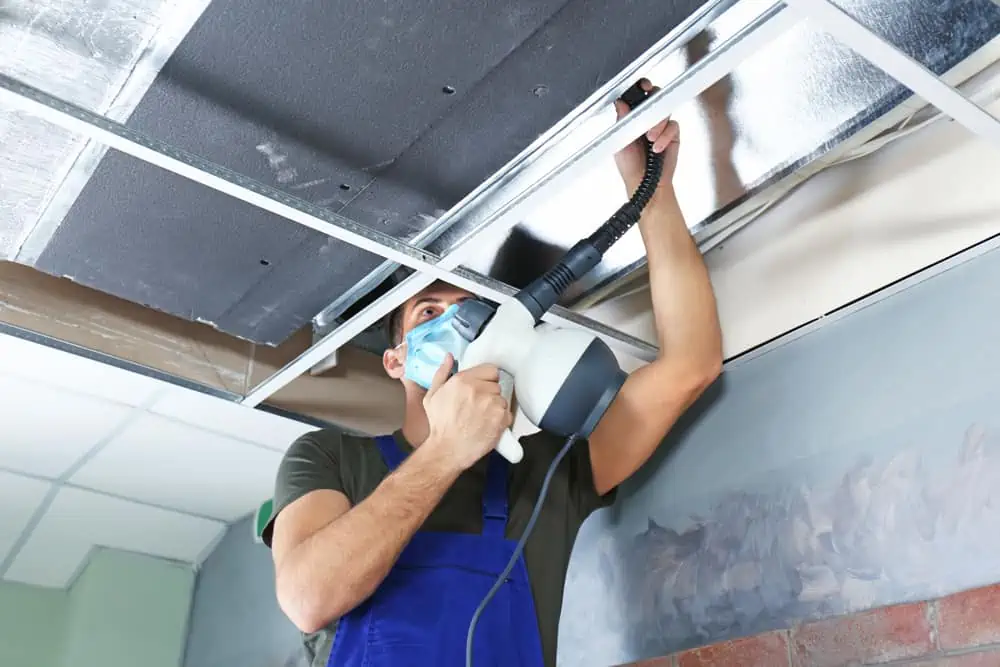
Why Air Duct Cleaning Matters
Air duct cleaning is vital for a healthy home environment as dust, debris, and allergens accumulate over time in ductwork. In Bergen County, homeowners rely on Apex Air Duct Cleaning & Chimney Services for dependable air duct cleaning services, ensuring improved indoor air quality.
Our efficient and effective methods prioritize your health and comfort, addressing air quality concerns with expertise and professionalism.
Experienced Professionals:
Our technicians are trained and experienced in providing comprehensive air duct cleaning services.
Satisfaction Guaranteed:
We prioritize customer satisfaction, ensuring that our work meets high standards. We stand by the quality of our services, committed to delivering exceptional results.
Local Expertise:
Serving Bergen County, we understand the unique needs of your home in Closter, NJ.
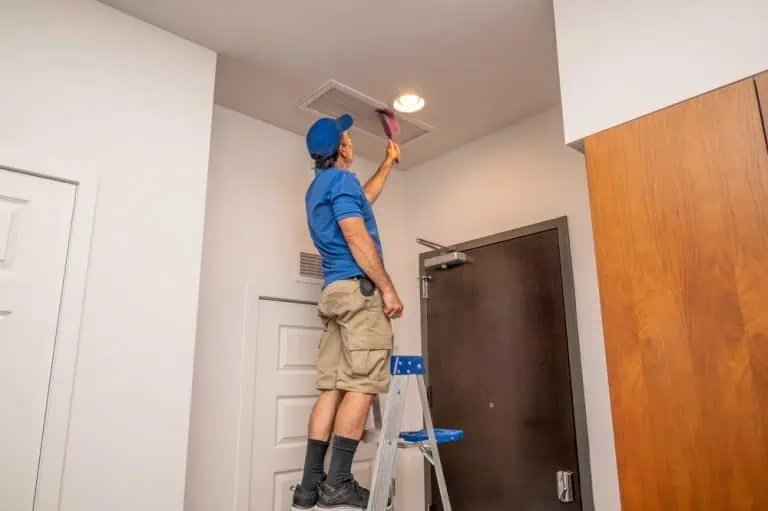
Signs You Need Air Duct Cleaning
Visible Dust and Debris: One of the most obvious signs that your air ducts need cleaning is the presence of dust and debris around your vents. If you notice dust accumulating on your vent covers or in the air around them, it means your ducts are likely full of dust that’s being circulated throughout your home. This can lead to an increase in household dust, making your cleaning tasks more frequent and difficult.
Allergy Flare-Ups: If you or your family members experience worsening allergy symptoms, it could be a sign that your air ducts are contaminated with allergens like dust mites, pollen, and pet dander. These particles can circulate through your HVAC system and into your living spaces of your Bergen, County, aggravating allergies and respiratory conditions. Clean air ducts can significantly reduce the presence of these allergens in your home, providing relief from symptoms.
Poor Airflow: Reduced airflow from your vents can indicate that your air ducts are clogged with dust and debris. When airflow is obstructed, your HVAC system has to work harder to maintain the desired temperature, which can lead to higher energy bills and potential system failures. Ensuring your air ducts are clean can improve airflow and help your HVAC system operate more efficiently, ultimately saving you money and extending the lifespan of your system.
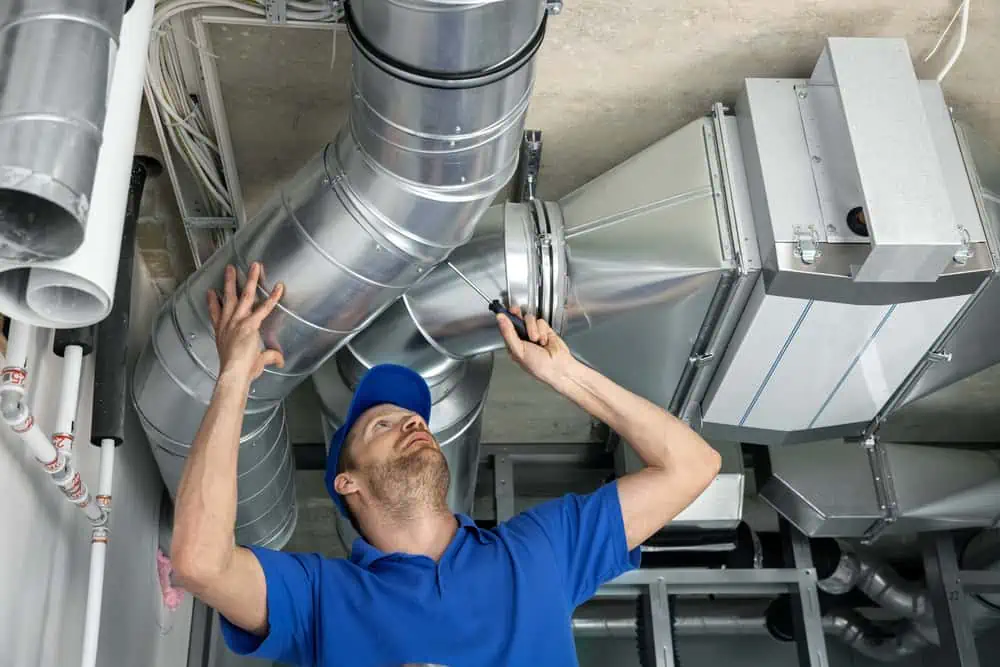
Benefits of Professional Air Duct Cleaning
Enhanced HVAC Efficiency: Professional air duct cleaning by Apex Air Duct Cleaning & Chimney Services can enhance the efficiency of your HVAC system. When your ducts are clean, air can flow freely through your system, reducing the strain on your HVAC unit. This not only helps your system run more efficiently but also extends its lifespan, preventing costly repairs and premature replacements.
Healthier Home Environment: Clean air ducts mean a healthier home environment for you and your family. By removing dust, allergens, and other contaminants from your ducts, you can significantly improve the indoor air quality in your home. This is particularly beneficial for individuals with allergies, asthma, or other respiratory issues, as cleaner air reduces the likelihood of triggering symptoms and improves overall health.
Cost Savings: Investing in professional air duct cleaning can lead to significant cost savings over time. A clean HVAC system runs more efficiently, which can lower your energy bills. Additionally, regular maintenance and cleaning can prevent the buildup of debris that can cause damage to your HVAC system, reducing the need for expensive repairs. In Closter, NJ, Apex Air Duct Cleaning & Chimney Services provides comprehensive air duct cleaning services to help you save money and maintain a comfortable, healthy home.
Have a question?
The Lenape Native Americans tilled the soil, hunted in the woods, and fished in the rivers and streams before the Dutch arrived in the early 18th Century. The Dutch settlers, though, left an indelible mark on the area. Early records show that after the English takeover of New Netherland, English Governor Philip Carteret in 1669 granted a real estate speculator named Balthaser De Hart a strip of property which extended east and west from the Hudson River to the Tiena Kill, and north and south from today’s Cresskill into Palisades, New York. It is within these geographical boundaries that lies what is now known as Closter. The first land grant deed for the area today known as Closter was not written until April 13, 1671. The northern half of this tract of land consisting of 1,030 acres (420 ha) (extending from what is Closter Dock Road northward) was purchased by Barent and Resolvert Nagel on April 25, 1710, who along with the Vervalen family first settled what is now Closter.
The name Closter is of Dutch origin and first appears in a November 18, 1721 deed between the surviving Tappan Patentees and Peter Haring (who owned land in Harrington Park/Norwood east of Tappan Road and between Harrington and Blanche Avenues)-the meets and bounds of the deed begin “Beginning at the bridge which comes out of the Clooster by the Dwars Kill…” (At that time, Closter was considered part of New York State). In the Dutch language, Klooster or “clooster” means “a quiet place, a monastery or cloister.” The name was originally pronounced with an “ow” sound, phonetically, “Klowster.” Later, just before the American Revolution, these isolated settlers began to feel the impact of the British Crown in their lives-not only in governmental affairs but also by the influx of English culture on their own language and practices. As a result the “K” in Klooster was dropped and was replaced with a “C” so the now growing village became known as Clooster. By 1795, with the emerging new American culture, the second “o” in Clooster was dropped, and the American English “long o” sound was adopted which led to today’s pronunciation of Closter.
The topography gave a sense of isolation and protection, tucked behind the highest point of the Palisades and protected by limited access. Alternatively, sources indicate that the name derives from an early settler named Frederick Closter who is said to have been granted the land in the area in the 1600s.
Learn more about Closter.Local Resources
Useful links for Closter, NJ
Useful Links
Here are some chimney-related links:

